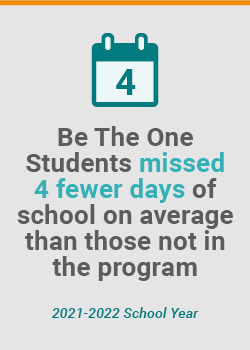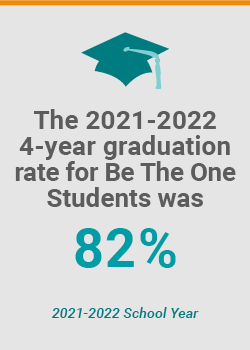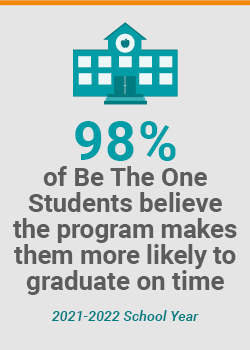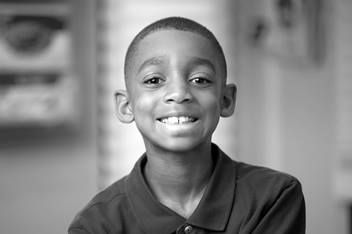How a Hospital Partners to Help High School Students Graduate

Pediatric hospitals appropriately focus on medical care to improve health. But as many studies suggest, medical care can only do so much to help children reach their full potential. Stable housing, nutrition, and family income can matter as much or more.
So does education. That’s why kindergarten readiness is one of the Pediatric Vital Signs that Nationwide Children’s Hospital tracks as it works to improve the health of entire populations. High school graduation is another key marker.
“We know that those who have a high school diploma have better health and economic outcomes,” says Tifini Ray, School Health project manager at Nationwide Children’s. “It may not seem obvious, but if you are helping someone in high school graduate, you are helping them become healthier.”
To achieve that goal, Nationwide Children’s partners with Linden-McKinley STEM Academy in a program called Be The One. Be The One focuses on students who may be at risk for not graduating, often because they have experienced family trauma, homelessness, and other so-called adverse childhood experiences, or ACEs.
The program has led to increases in graduation rates, fewer suspensions, less frequently missed classes and other successes.
Be The One was begun by Columbus City Schools teacher Dawn Heideman, who recognized that students were dealing with far more in their lives than tests and homework. (Watch her explain the origins of Be The One here). Nationwide Children’s was already heavily involved in Linden-McKinley through a school-based health clinic that provides primary and behavioral health care. The Linden neighborhood is also now part of Nationwide Children’s Healthy Neighborhoods Healthy Families initiative, which develops affordable, high-quality housing, runs workforce training programs, and helps run a free fresh food market, among many other community revitalization efforts.
“Being part of Be The One is just another way that we can continue supporting Linden’s young people to thrive,” says Ray.
Be The One is an elective at Linden-McKinley, often with approximately 100 students participating per year. It centers around five key intervention areas according to Columbus City Schools:
- Relationship building
- Attending to physical and emotional needs
- Recognizing defense mechanisms
- Acting unafraid and reaching out to others
- Being supported
Nationwide Children’s itself has worked on building relationships within the school and becoming a trusted partner, says Ray. The hospital has also brought its own focus on “quality improvement” – usually a systematic process to improve medical care – to students. During the 2021-2022 school year, Ray and her colleagues guided 16 student teams as they developed quality improvement projects to help their classmates who dealing with homelessness, attendance, racism and violence.
Be The One participants, often at risk for not graduating at all, have an on-time graduation rate of 82%, and they missed four fewer days of school per year than students who were not in the program. As Linden-McKinley continues to emerge from the COVID-19 pandemic, there’s great potential to do more.
“I think we’re all excited about what we’ve accomplished so far, and what we can do in the future,” says Ray.



“It may not seem obvious, but if you are helping someone in high school graduate, you are helping them become healthier.”



